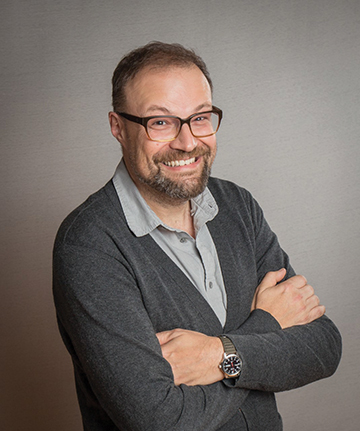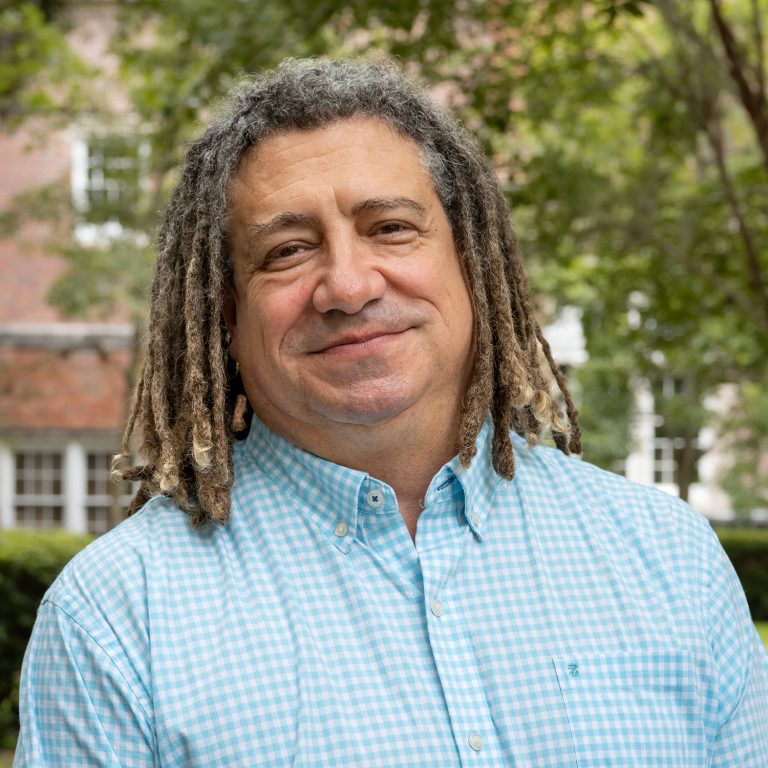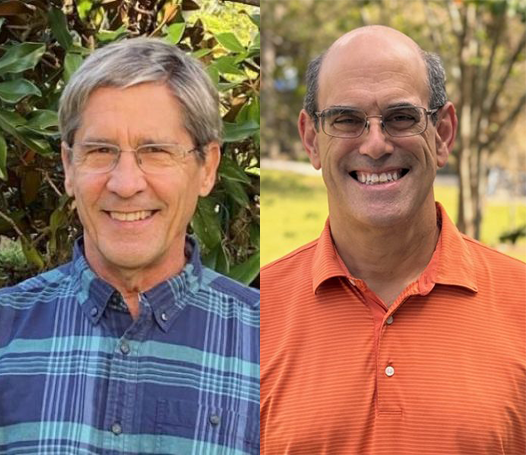
At UF, human connections power artificial intelligence
New tools reshape research in the humanities, social sciences
Research in the humanities and social sciences has a long history of bridging academic disciplines. Psychologists find natural partners across the health professions, philosophers employ mathematics, and linguistics leads to anthropology. Now, the emergence of artificial intelligence offers a set of tools that is redefining interdisciplinary scholarship.
The broad reach of the College of Liberal Arts and Sciences at the University of Florida offers a fertile foundation for AI research.
“The way we are structured facilitates bringing together exciting people who then work together on exciting, innovative things,” said Distinguished Professor of Psychology Andreas Keil. “With AI, all science is team science. All team science spans multiple disciplines.”

Keil’s research into attention and emotion uses AI in a variety of ways. Among them, generative AI models provide responses to emotionally challenging situations, allowing researchers to explore scenarios that would be ethically unacceptable to test on humans.
“And this is just the beginning. Our model of artificial intelligence — deep architecture, as we call it — can do threat responding and threat learning,” Keil said. “It does only a few things that humans do. It doesn’t have the ability to experience anxiety but does behave in very specific ways like human beings would.” Ultimately, this approach could lead to more effective therapies for those who have experienced trauma.
AI modeling may help predict rifts in political systems
Badredine Arfi, professor of political science, also holds a PhD in theoretical physics. While the UF campus was closed during the COVID-19 pandemic, he developed AI tools to analyze large data sets for international studies. His work may help predict disruptions in democracies and goes beyond traditional analytical methods. Arfi is completing a book about those models.
“It allowed me to ask new questions. That is especially important now that we have so much data,” Arfi said. “The traditional tools we use to analyze data are not sufficient. AI tools allow us to go beyond those limitations, to see patterns we could never see before.”
Describing his current work as a “proof of concept,” Arfi acknowledges the underutilization of these tools in social science. His mission is to persuade colleagues both in the United States and around the world that leveraging AI tools for data analysis is not only worthwhile but essential.
He draws a parallel to the medical field, where AI tools enable physicians to identify cancers at their earliest stages, so treatments can be tailored specifically for the locations of those cells. “The same tools can be used to answer our questions in social sciences,” Arfi said.
“Are we able to make predictions when a certain society or certain regime may fail? Well, AI can allow you to do that,” he said. This offers the hope of addressing social ills before they become contagions that spread with devastating results.
Human networks alongside computer networks
CLAS units have hired more than 20 faculty members recently, specifically because of their demonstrated AI skills. Many more do AI-focused research and instruction.
Barbara Zsembik, associate professor in the Department of Sociology and Criminology & Law, has been working with Arfi to organize an informal working group of these “AI hires” and others across CLAS departments.
“So many disciplines are a little late to the game. How do you jump-start it? That’s bringing people together to say we need to be on the front edge at this university in our disciplines implementing these tools. What can we learn from each other?” she posed. They aim to find out through a series of interdisciplinary AI talks scheduled for the spring.
AI is also reshaping language instruction. Faculty in the Department of Spanish and Portuguese Studies incorporate ChatGPT into composition and translation courses.
Luis Álvarez-Castro, professor and department chair, sees great potential in AI to enhance the Spanish for the professions certificate.
He envisions combining virtual reality with AI to create immersive, dynamic instruction that focuses more on experiential learning and less on skills assessment. Students may engage with virtual people and places in preparation for live encounters, such as professional interactions and study abroad programs.
A challenge for scholars in the humanities is the scarcity of large electronic data sets. Primary source materials, particularly in fields like women’s studies, history, and religious studies, are often found on library shelves or stored in dusty boxes, not in digital formats. Trysh Travis, cognizant associate dean for humanities in CLAS, worries this could create a barrier for graduate students interested in using AI tools for their research.
“We need to be equipping our students today with AI skills. It would be unethical not to do so,” Travis said. 
Talking differently about AI
Sid Dobrin, chair of the University of Florida’s English department, has become one of the world’s most sought-after academic experts on generative AI, with over 40 talks worldwide this past year. While on the move, he stays informed through podcasts, audiobooks, and extensive reading, keeping pace as AI moves at an exponential clip.

Dobrin focuses on enduring AI questions in education and society that persist beyond tech releases. Even so, when visiting other campuses, administrators seek his guidance on AI tool policies.
“At UF, we’re having a very different AI conversation,” Dobrin said. “We’re really thinking about what is coming next for AI, rather than simply asking how do I use these tools to do the same things we’ve always done.”
This goes beyond rethinking academic traditions such as student assessments; it may dissolve boundaries between academic disciplines.
“When it comes to AI, the humanities have been living in the shadow of STEM,” Dobrin said. “Traditionally, we have siloed off these different approaches to knowledge, but AI shows us these things are not separable.” While noting ethics is a prominent aspect of current debates over AI, Dobrin said humanities scholars also explore nuanced aspects, such as the concept of the autonomous student subject. AI reveals that the student is not independent — all learning is network learning.
“I’m trying to demystify this technology and how it works,” Dobrin said. “Then we teach how to deploy it.”
Read more from the Fall/Winter 2023 issue of Ytori magazine.


